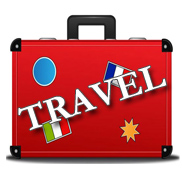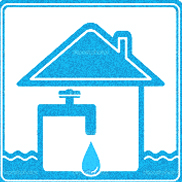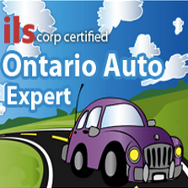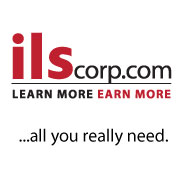
Aug 8, 2013 | News
Are you writing the CAIB 3 exam this fall? Your best exam prep option is the ILScorp live immersion course, led by Todd Hochban of West Coast Training. Attend the course from Sept 9-13 and write the national exam on Sept 19.
You must register to write the Canadian Accredited Insurance Broker level 3 exam by Aug.16.
The live immersion class follows the ILS CAIB 3 exam prep course. Led by renowned insurance educator and president of West Coast Training, Todd Hochban, the five-day program gives students all of the knowledge, information and skills they need to pass the CAIB 3 exam.
The live CAIB 3 immersion classroom session runs from Sept. 9-13 at the BCIT campus in Vancouver. Registration is only $599.20 per student, and includes study aids and a work book.
ILScorp offers insurance training and exam prep courses for CAIB 1, 2, 3, & 4, through online video training, virtual classroom programs, and classroom immersion programs.
If you can’t make the immersion class, considering the following options:
- Our interactive, online CAIB Exam Preparation video courses combine the dynamic instruction of Todd Hochban with the ease and convenience of online learning. Numerous exercises and mock exams help to reinforce knowledge retention. Study online with 24/7 access to the program, allowing you to work on your own schedule.
Instructor Todd Hochban highly recommends using the CAIB textbook in conjunction with the ILScorp CAIB Programs to thoroughly learn the material. CAIB text books can be purchased through your provincial insurance brokers association. Contact the association directly for more information.
If you’re ready to start call ILS today or buy your subscription online. If the more in-depth Virtual Classroom is for you, take $100 off with the promo code SUMMERSTART, but hurry – this offer expires Aug. 15. Call 1-800-404-2211 today.

Aug 7, 2013 | News
A recent study on summer travel by BMO Insurance found that while 83 per cent of Canadians plan to take a vacation this summer, only half of Canadians who travel will purchase medical insurance.
While the average spent by Canadians on vacations to popular destinations including United States, Europe and Central and South America will be $3,073, travellers are potentially leaving themselves and their families facing much higher costs should they get sick or have an accident while travelling.
Getting sick while out of the country can be very expensive. The cost of treating a broken leg in the United States, for example, can be up to $20,000, while an air ambulance from Florida to Ontario can run up to $15,000 (as reported by Global News). Even within the country, Canadians may not be covered for all required medical care when travelling to another province.
According to the Canadian Life and Health Insurance Association, group health insurance through your employer, union or professional association may cover out-of-country hospital or medical expenses, but people should always check to see what is covered and what is excluded before they leave for their vacation.
For example, check if policies cover the entire length of your absence from Canada or your home province and, if you extend your stay, can your policy be extended.
It’s also important to know what types of restrictions your policy has. Are there exclusions for specific activities or events such as sports, war, suicide or substance abuse? Know if your policy will pay for an emergency return home, and if you’re travelling with others, if each each person will need a separate policy. Are certain countries or locations not covered and does your policy provide for trip cancellation, baggage loss and other damages?
Some policies will not provide coverage for medical conditions that exist before your departure. This includes conditions for which you have seen a doctor or received other treatment recently. Other policies may provide coverage for these conditions but on a limited basis.
Look for a travel medical policy that includes medical and dental coverage, air ambulance, private duty nurse expenses and airfare and lodging for a family member to fly out to be by your side. As well, be sure you understand who pays. Some insurers pay the doctor directly while others require the traveller to pay up front and then get reimbursed later.
And read the fine print. Make sure your policy covers you for all trip activities and is valid for the duration of your trip.
“Unless you and your family are covered through other means, it’s critical to make sure you have travel medical insurance because emergencies can happen anytime, anywhere,” says Julie Barker-Merz, vice president and chief operating officer of BMO Insurance “Making sure you have travel medical insurance should be a high priority item on any traveller’s vacation to-do list.”
To learn about insurance training for Canadian insurance agents, visit ILScorp.com
Excerpted from Global News. To receive more daily news updates from the Canadian Insurance Industry, visit ILSTV.com

Aug 2, 2013 | News
(CP) Toronto-based Intact Financial Corp. (TSX:IFC) is boosting its prices in light of recent flooding in Alberta and Toronto, and warning Canadians to expect changes to home insurance premiums as companies face big losses from major weather events.
“The frequency of severe weather events in the past few weeks has made it clear to me that the sustainability of home insurance in its current form is being challenged,” chief executive Charles Brindamour told analysts Wednesday. “While we’ve made meaningful progress with underwriting profits, on average, over the past three years in that line of business, our approach needs to evolve further, given the environment we face and will likely face in the coming years.”
Intact had a smaller second-quarter profit than last year but exceeded analyst estimates following several recent catastrophes that will result in millions of dollars of payouts by the insurance company.
On a per-share basis, the Toronto-based property and casualty insurer had 89 cents per share of net operating income. That was down from $1.35 a year earlier but 16 cents a share better than anticipated. Overall, Intact’s net operating income fell 32 per cent to $123 million, down $57 million from $180 million a year ago.
The lower operating income in the quarter ended June 30 reflects losses related to storms and flooding in Alberta. Intact had warned in July that it expected to take a hit in both the second and third quarter from claims related to flooding in Alberta, flash floods in Toronto and the Lac-Megantic train crash in Quebec.
The company said it is tweaking its home insurance products, boosting premiums and working to educate clients on how to minimize potential future losses.
“The plan we have in mind will focus on ensuring customers have a better understanding of the risks they face and what they can do to better adapt to climate change,” Brindamour said. “This issue is not one solely affecting the insurance industry, but rather society as a whole, and as such, we will work with communities across the country to raise awareness as to how they can better protect themselves against the impacts of extreme weather.”
Other insurance companies have also felt the impact of recent severe weather events.
Last week, Co-operators General Insurance Company (TSX:CCS.PR.C) dropped to a second-quarter loss of $5.9 million, mostly on costs from the floods in Alberta. The company said it lost around $77 million before taxes as a result of the Alberta floods, even after collecting reinsurance.
TD Bank Group (TSX:TD) said Tuesday the flooding in Toronto and Alberta will likely result in a loss for its insurance business, which would have been profitable without the weather-related expenses. TD Insurance faces an after-tax net loss of between $240 million and $290 million for the most recent quarter.
Excerpted from the Canadian Press. For more Canadian insurance industry news, sign up for the ILSTV daily or weekly newsletter

Aug 1, 2013 | News
How well auto insurance providers handle claims may make or break the relationship with their customers, according to the J.D. Power 2013 Canadian Auto Claims Satisfaction Study, released July 29.
The inaugural study measured customer satisfaction with the claims experience for auto physical damage loss. Depending on the complexity of the claim, a claimant may experience some or all of the following factors that are measured in the study: first notice of loss; service interaction; appraisal; repair process; rental experience; and settlement.
Although settlement proved to be the most important factor in overall satisfaction among both total loss and repair claimants, the first notice of loss (FNOL) — the first phone call a customer makes to their insurance provider — sets the tone for the rest of the claims process. The first phone call averages 18 minutes, according to the study.
“If that initial call goes well, odds are good that the claims process will go well and also bodes well for the long-term relationship with the customer.”
“The first call to notify the provider of the damage is critical to customer satisfaction with the entire claims process,” said Jeremy Bowler, senior director of the insurance practice at J.D. Power. “If that initial call goes well, odds are good that the claims process will go well and also bodes well for the long-term relationship with the customer.”
The study finds that claimants who receive an explanation during the first call with their provider of what to expect during the claims process are significantly more satisfied. While a majority (87%) of claimants receive an explanation, overall satisfaction declines by a substantial 169 index points, on average, when claimants don’t receive an explanation of the process.
Satisfaction among claimants who have all of their questions answered during the first call averages 810, compared with an average of 651 among claimants who do not get all of their questions answered during this call.
Managing expectations
Managing claimants’ expectations regarding the settlement—and avoiding surprises—is critical to a satisfying settlement experience. The study finds that, overall, 90 percent of claimants are satisfied with the settlement—which is the largest contributor to overall satisfaction with the claims process.
“Communication between the provider and the claimant is critical during the settlement phase,” said Bowler. “The claimant wants to know what is and isn’t covered by their policy, the extent of the damage to the vehicle, and how and when it will be repaired or replaced. It’s really about setting claimants’ expectations and then meeting them.”
While claimants are most satisfied with the repair process, which averages 805 index points, satisfaction with the appraisal process is lower than for any other factor in the study.
“Insurance is a product people buy because they have to, but hope they never need to use,” said Bowler. “They really see the value of their investment if they need to file a claim. If the appraisal of damages comes in lower than what they expect, they are naturally going to be disappointed.”
Regional Findings
Overall customer satisfaction with the auto claims experience in among Canadian provinces included in the study averages 787. Satisfaction varies greatly by province, ranging from a high of 840 in Quebec to a low of 753 in Manitoba. Among other provinces, Ontario averages 800; Alberta 770; British Columbia 767; and Saskatchewan 760.
The 2013 Canadian Auto Claims Satisfaction Study is based on responses from 2,458 auto insurance customers in Canada who settled an auto insurance claim within the past 18 months. The study excludes claimants whose vehicle incurred only glass/windshield damage or was stolen, or who filed a roadside assistance claim only. The study was fielded between April and June 2013.
Read the full report, and subscribe to daily or weekly Canadian insurance news updates at ILStv.com.
Become a Certified Ontario Auto Expert with a new insurance training course from ILScorp.com. Online Continuing Education Courses for insurance brokers in other provinces are also available.

Aug 1, 2013 | News
ILScorp offers insurance training and exam prep courses for CAIB 1, 2, 3, & 4, both through online video training, and, starting Aug. 12, with a 4 week virtual classroom program.
If you are just starting your insurance career, then the CAIB 1 Exam prep course is for you. Learn the fundamentals of working in the insurance industry, and prepare to write your CAIB 1 licensing exam.
Looking to earn your CAIB 2, 3, or 4 designation? ILS can help there too!
Our interactive, online CAIB Exam Preparation video courses combine the dynamic instruction of Todd Hochban with the ease and convenience of online learning. Each CAIB insurance training course contains streaming video, and is divided into easy-to-manage chapters. Each chapter includes 10-20 video clips, along with easy to read text. Numerous exercises and mock exams help to reinforce knowledge retention.
Study online with 24/7 access to the program, allowing you to work on your own schedule. Or if you want more guidance, start the ILS CAIB Virtual Classroom program on Aug. 12 and receive a study schedule, daily emails and quizzes and more.
Online self-study is a proven way to successfully prepare for insurance licensing examinations. Study at your own pace, at your own convenience. Stop the program at any time and return when you want. Go back over difficult-to-grasp points as often as you wish.
More than 80% of students who prepare to write their CAIB exams with the ILScorp CAIB tutorial courses are successful.
Through ILS’s online courses, you’ll receive the same dynamic instruction as students who attend classroom sessions. Long-time insurance educator Todd Hochban brings his successful “need-to-know” approach to this video production. Preparing to write the CAIB 1, CAIB 2, CAIB 3, and CAIB 4 examinations has never been easier!
Once you’re ready to write the exam, contact your local insurance council to arrange your exam.
Instructor Todd Hochban highly recommends using the CAIB textbook in conjunction with the ILScorp CAIB Programs to thoroughly learn the material. CAIB text books can be purchased through your provincial brokers association. Contact the association directly for more information.
And remember when it comes to CAIB – ILS wrote the book! Our founder and past president Steve Hawrishok developed and wrote the CAIB course.
If you’re ready to start, call ILS today or register online at ILScorp.com. If the more in-depth Virtual Classroom is for you, take $100 off with the promo code SUMMERSTART, only until Aug 15th. Call 1-800-404-2211 today.

Jul 29, 2013 | News
Are you considering an insurance career? Wondering where to find an insurance training course? ILScorp is here to help you get started working in the insurance industry in Canada.
According to Statistics Canada, more than one million Canadians were employed in the insurance and financial sector in 2012 – and there’s always room for more. Think about it – that’s one million Canadians enjoying a rewarding insurance career, and those numbers continue to grow!
Consider the following numbers from Insureconomy, a review of the insurance sectors in Ontario, New Brunswick and Nova Scotia:
- From 2004 to 2010, total employment in the insurance industry across New Brunswick grew by 49 percent – faster than all other provinces in Canada.
- The insurance industry has been growing steadily in Ontario since 2005, with insurance carriers increasing their workforce by 18 percent. Overall, the insurance industry increased total employment by over 12 percent – well above the provincial employment growth rate of only 4 percent.
- Direct employment in Nova Scotia’s insurance industry has been on the rise since 2005. From 2005 to 2008, 655 new jobs were created by the insurance industry.
There’s never been a better time to get involved in this growing and dynamic industry.
The first step to starting your insurance career is through accredited insurance training and a provincial insurance licensing course and exam. Programs include CAIB preparation, Alberta Level 1&2, and the ILS Introduction to General Insurance. Find the details of what’s required in your province or territory, and see how ILScorp can get you on your way to rewarding insurance career.
Call ILScorp at 1-800-404-2211 or visit ILScorp.com and get started today.









